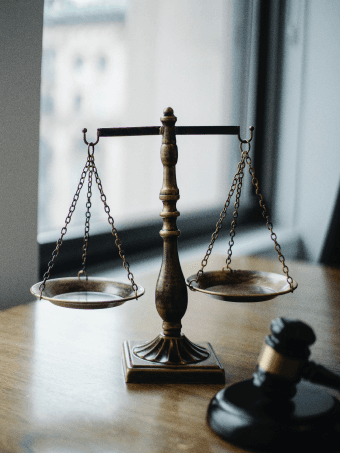Legal services included
In the realm of law and legal technology, recent advancements in artificial intelligence (AI) and machine learning have garnered significant interest, as they have the potential to have a substantial impact on the legal field. Following in the footsteps of Richard Susskind, the modern prophet of disruption in legal services, and having been closely watching the nowadays much debated topic of how the market of legal services will be transformed by such rampant changes, I have also been thinking about the use of AI, and its latest publicly available incarnations in the form of ChatGPT (and Bing AI), in relation to trademarks in particular.
Potential use cases
In the field of trademarks, there exists a considerable scope for automation, even in the absence of AI-driven tools. Nevertheless, the incorporation of such tools into the process has the potential to introduce novel perspectives and significantly enhance efficiency. Specifically, AI-powered tools can revolutionize tasks such as the drafting of lists of goods and services, response to simpler Office Actions, and even ex ante similarity searches and risk assessments.
How does it work, then?
So far, I have tried ChatGPT 3.5 and ChatGPT 4 when drafting the lists of goods and/or services for the purposes of trademark applications in several jurisdictions.
To illustrate their particular capabilities in this respect, I prompted the chatbots
to put together a list of goods and/or services, counting 10-15 items in total, for the purposes of a trademark application,
for a client, an online marketing company, which provides marketing and advertising services to its clients,
while using only the so-called harmonized terms, pre-approved by the EUIPO.
What can you get for free?
The freely available version of ChatGPT 3.5 has returned a relatively solid outcome, suggesting registration in classes 35 (advertising), 38 (telecommunications) and 42 (IT services).
Although the proposed selection of classes is too broad, given the incomplete description of the “client’s” activities, it is not completely off. However, it is fair to say that class 35 alone, or possibly together with class 42 in case there was also some IT element to the services at hand (such as online platform etc.), would suffice in order to cover the “client’s” activities. Class 38 seems rather unnecessary and redundant.

The particular terms proposed by ChatGPT fit into the selected classes, though some of them are not harmonized, pre-approved by the EUIPO, as requested (Electronic transmission of data and documents, Web design services, Hosting services).
When I pointed this out, without specifically referring to particular terms that should be replaced, ChatGPT has offered an amended list, in which only one non-harmonized term (Web design services) was replaced by a harmonized one (Website design and development). The other two remained unchanged, while the chatbot inexplicably also replaced the harmonized term “Market research” for another harmonized term “Market research and analysis”.
After further exchange, ChatGPT admitted that it does not have access to the EUIPO harmonized database and that the selection of particular terms has been put together while using different sources.

Interestingly enough, this somewhat contradicts its previous assertion that it has accessed the EUIPO database to ensure that all the terms are pre-approved when updating the list for the first time.

What is it? A lottery?
In order to explore other possible answers, I have prompted ChatGPT for the same question multiple times. The answers differed significantly.
At some point the chatbot has suggested registration in classes 35 (advertising), 41 (education and entertainment) and 42 (IT services). If anything, this may be proof that class 38 in a previous result was really a little bit of a mismatch. Like the class 41 in this instance, which also does not fit the description of “client’s” business well.
The new list also features a different set of terms, though the particular selection in this case is more or less comparable to that generated on the first go. Further on, this set of services features only one non-harmonized term (Hosting services for websites and applications).

It follows from the above that it is generally a good idea to run the same prompt through ChatGPT several times in order to get the better idea of what classes and goods/services may truly be relevant for particular description of “client’s” business activities.
What can money buy? Is Chat GPT 4 an improvement?
Prior, I have exclusively tested the publicly available free version of ChatGPT, namely Chat GPT 3.5. However, my curiosity prompted me to explore the potential of the paid version, ChatGPT 4, and whether it could yield superior results. As such, I proceeded to pose the same query as previously presented to the ChatGPT 4.
The outcomes generated by ChatGPT 4 are relatively comparable to those of its predecessor, Chat GPT 3.5. Notably, it suggested classes 35, 42, and 41, which included a more extensive range of non-harmonized terms. Nevertheless, the terms featured in these suggested classes appear to subjectively align more closely with the nature of the "client's" services.

However, on the second go, the chatbot has provided me only with a suggestion of the list of services in classes 35 and 42. Further on, this time, the list featured only one non-harmonized item.

Additionally, the answer to the question whether it has access to the EUIPO harmonized database somewhat differed. ChatGPT 4 has also admitted that it has no access to the EUIPO database but it has also further provided that the terms generated above are commonly used and have a high probability of being part of the harmonized terms.

It is not wrong. This list truly seems to be drafted well and likely to pass the initial examination, though not qualify for Fast Track. This leads me to believe that there is some difference between GPT 3.5 and GPT 4 in terms of reliability of their results.
Conclusion: Helpful but (yet) unreliable
It must be acknowledged that the scope of this experiment is largely anecdotal, and as such, drawing definite conclusions based solely on this limited information could be misleading. Nevertheless, it can still offer some general insight into the potential usefulness of ChatGPT in the process of drafting trademark applications. While the results may seem convincing at first glance, a closer examination reveals that they are not always entirely reliable. This is a significant drawback in the legal field, where accuracy and precision are crucial.
Consequently, there remains a clear need for a skilled legal professional, such as a trademark attorney, to critically review the outcome generated by ChatGPT. Indeed, ChatGPT itself recommends that the proposed list be consulted with a trademark attorney to ensure that the application satisfies legal requirements and is appropriately filed.
However, it is reasonable to assume that if the GPT model had access to the relevant databases, the results would be significantly more dependable. In fact, this presents an opportunity for further utilization of ChatGPT in legal tech, potentially as part of more narrowly specialized tools that are locally cultivated and fed by new and appropriate datasets.
Limits of large language models
It is clear that the AI, at least the one embodied in the GPT language model, does not truly “understand” the discussed topics but that it is capable of appearing like it does when answering the prompt. The answer is certainly not an outcome produced by a thinking entity. Instead, it is rather an outcome generated based on probabilities calculated by the statistical model trained on large datasets.
Tools like ChatGPT operate by producing a plausible response to a given prompt based on the vast quantity of learning data that has been inputted into the model, without necessarily comprehending the prompt itself. The resulting response is then constructed by evaluating all the potential and credible combinations of the words used in the prompt.
This is not a novel or unexpected phenomenon for computer scientists or technology professionals. However, it is important for the general public to also be aware of this aspect of AI language models to better appreciate the capabilities and limitations of tools such as ChatGPT. This awareness can assist in establishing realistic expectations of what can and cannot be accomplished by such tools. It is then vital to consider this facet of the technology when employing AI-powered tools like ChatGPT, to ensure that they are integrated effectively into our work.
Overall, AI-powered tools such as ChatGPT serve as a valuable asset to legal professionals, offering support in drafting and refining legal documents. However, the role of legal professionals in providing expert advice, critical analysis, and guidance in complex legal matters remains crucial. It is essential to recognize the capabilities and limitations of AI technology in the legal field, ensuring that it is employed in a manner that enhances and strengthens legal services.


